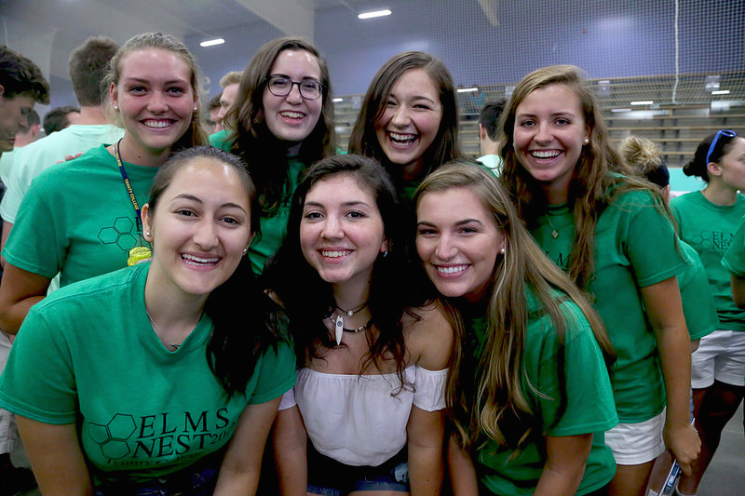By Kira Edison ’20
Contributing Writer
I made lifelong friends the day that I walked into kindergarten; I asked to borrow crayons, shared my Chips Ahoy at lunch, and formed a relationship with my best friend in the time-out corner. I wasn’t required to make new friends for twelve years because the twenty-seven individuals that graduated high school with me were all present in kindergarten. Those relationships forged by crayons and Chips Ahoy were maintained by hours of shared time in and out of the classroom. My friendship-making skills were rusty when I arrived at Trinity, and I was initially thankful that I had been placed in Minty Nest because it served as an easy excuse to make my presence known and hopefully force friendships.
The first Nest meeting took place directly after matriculation and can be most accurately described as 20 minutes of awkward small talk, endless repetition of names, and dozens of students staring at the floor trying to avoid tearful eye-contact after bidding farewell to their families. Unfortunately, the night’s Nest interactions were not the jackpot for friends that I was looking for. I was uncomfortable and felt unnatural. I quickly discovered that the tactics I had used in kindergarten to create friendships were not so different from those that I would need to use in my first few days at college. There was nothing wrong or awkward about asking to borrow a pencil in lieu of crayons, I did not have to be ashamed to speak to someone about my sweet tooth for chocolate chip cookies, and I have bonded with my newfound friends in the common room instead of the time-out corner. Friendships come naturally when you open yourself up to the opportunity; they don’t need to be forced.
Orientation trudged on, and from time-to-time we were corralled back to our Nests to congregate with our fellow “Nestlings.” It quickly felt like a chore to be leashed to your Nest and whisked away at sporadic times to engage in social interaction. The Class of 2020 was forming friendships outside of our Nests, and each awkwardly timed meeting pulled us out of meaningful conversations, group activities within residence halls, and even away from calls home and necessary time to ourselves.
The Nests were a splendid idea in theory, but they seemed to be a larger and less necessary version of orientation groups. Many members of the Class of 2020 questioned why it was imperative that they were part of an orientation group, a Nest, and a First Year Seminar group. The purposes of each group overlapped and stretched the social skills of many too thin. Instead of easing my transition into college, the Nest program made me feel as though I was incapable of creating relationships on my own.
Essentially, orientation groups were sufficient to help first-year students transition. Students will naturally settle into a comfort zone once they discover individuals with shared interests through classes and extracurricular activities.The Nest program was just one more thing added to the plates of stressed, nervous freshmen.
In a positive light, the Nest program taught me that I was more successful in making friends and finding my way in college when I did it naturally. I simply needed to see that I was capable of transitioning into college and new friendships, and the Nests taught me that important lesson.
Let Freshmen Flock: Nest Program Inconvenient




+ There are no comments
Add yours